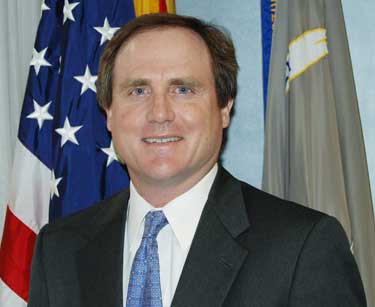BY LINDA BENTLEY | MAY 4, 2011
U.S. Attorney warns growing, distributing, possessing marijuana violates federal law
‘My thought is that now that more states have enacted this law, there may be a greater interest in stopping mass distribution’
 CAVE CREEK – Now that the Arizona Department of Health Services (ADHS) has filed its rules and regulations to implement the Arizona Medical Marijuana Act (AMMA), U.S. Attorney Dennis Burke (left) sent a letter to ADHS Director Will Humble, regarding the program.
CAVE CREEK – Now that the Arizona Department of Health Services (ADHS) has filed its rules and regulations to implement the Arizona Medical Marijuana Act (AMMA), U.S. Attorney Dennis Burke (left) sent a letter to ADHS Director Will Humble, regarding the program.
Burke said he was responding to numerous inquiries and wanted to ensure there was no confusion regarding the Department of Justice’s (DOJ) view of “such a regulatory scheme.”
He wrote, “The Department has advised consistently that Congress has determined that marijuana is a controlled substance, placing it in Schedule I of the Controlled Substances Act (CSA). That means growing, distributing and possessing marijuana in any capacity, other than as part of a federally authorized research program, is a violation of federal law regardless of state laws that purport to permit such activities.”
Burke points out the DOJ has made it a priority for decades to prosecute individuals and organizations involved in the illegal drug trade, while the disruption of illegal drug manufacturing and trafficking networks has been a core priority of the DOJ.
He also made it clear that the U.S. Attorney’s Office for the District of Arizona “will continue to vigorously prosecute individuals and organizations that participate in unlawful manufacturing, distribution and marketing activity involving marijuana, even if such activities are permitted under state law."
In 2009, then Deputy Attorney General Ogden issued a memorandum providing guidance in districts where a state had enacted medical marijuana programs. Ogden opined the USAOs ought not focus their limited resources on seriously ill individuals using marijuana as part of a medically recommended treatment regimen and who are in clear and unambiguous compliance with such state laws.
Although Burke stated his office will continue to follow that guidance, he also said, “The public should understand, however, that even clear and unambiguous compliance with AMMS does not render possession or distribution of marijuana lawful under federal statute.”
Burke warned the CSA may be “vigorously enforced” against individuals and entities operating large marijuana production facilities and said, “Individuals and organizations – including property owners, landlords and financiers – that knowingly facilitate the actions of traffickers also should know that compliance with AMMA will not protect them from federal criminal prosecution, asset forfeiture and other civil penalties.”
He also said compliance with Arizona laws and regulations will provide neither a safe harbor nor immunity from federal prosecution.
As far as the USAO’s approach to the AMMA in Indian Country, which comprises nearly one third of the land and 5 percent of Arizona’s population, and in which state law – including AMMA – is largely inapplicable, Burke said the USAO currently has exclusive felony jurisdiction over drug trafficking offenses in Indian Country.
According to Burke, the USAO will continue to evaluate marijuana prosecutions in Indian Country and on federal lands on a case-by-case basis, but said any individual or organization that grows, distributes or possesses marijuana on federal or tribal lands will be doing so in violation of federal law and may be subject to federal prosecution, regardless of the quantity.
He cautioned individuals possessing or trafficking marijuana in Indian Country may also be subject to tribal penalties.
In conclusion, Burke wrote, “I hope this letter assists the Department of health Services and potential registrants in making informed choices regarding possession, cultivation, manufacturing and distribution of medical marijuana."
.jpg) Cave Creek Town Attorney Marlene Pontrelli (right), responding to Burke’s letter, said the issue had been raised previously about whether the state law violated federal marijuana laws.
Cave Creek Town Attorney Marlene Pontrelli (right), responding to Burke’s letter, said the issue had been raised previously about whether the state law violated federal marijuana laws.
She said, “Generally, in answering this question, I followed the U.S. District Attorney (Ogden) 2009 memorandum,” and reiterated the policy had been to not take action against seriously ill patients.
While Burke’s letter appeared to confirm that view, Pontrelli said it also made it clear that large operations and distribution will be considered violations of federal law.
She said, “My thought is that now that more states have enacted this law, there may be a greater interest in stopping mass distribution.”
Because all the town would be doing at this point is signing forms reflecting an applicant is in compliance with zoning regulations, Pontrelli said she didn’t see the town as facilitating the operations.
She also stated Burke’s letter gave her more comfort in the limitations the town decided to impose on caregivers, in that they too must live more than 25 miles from a distribution center in order to cultivate marijuana, a limitation not specifically authorized by state statute.
Pontrelli said, “I’m sure we can expect lots of public debate in the weeks ahead about this issue.”





